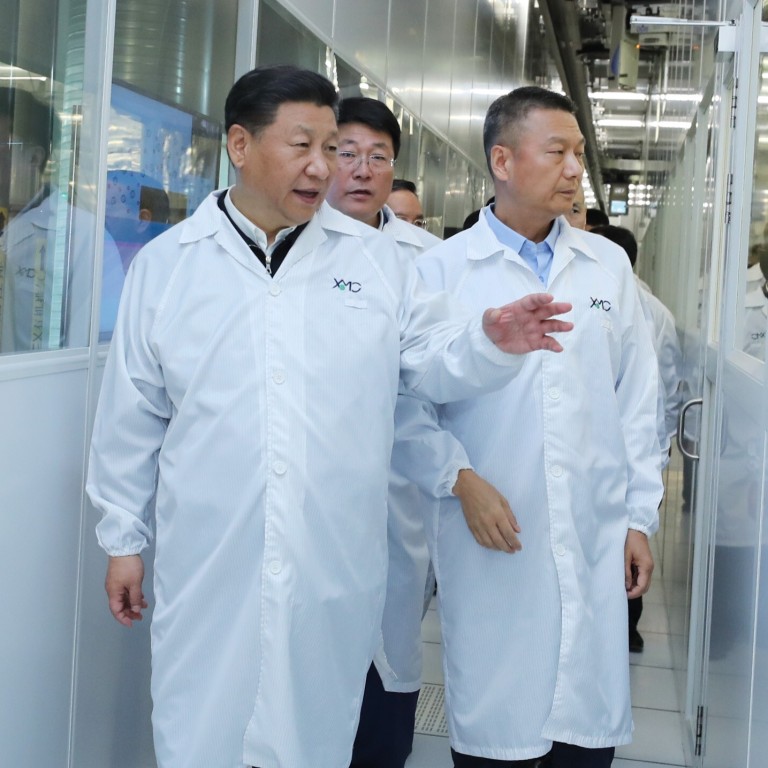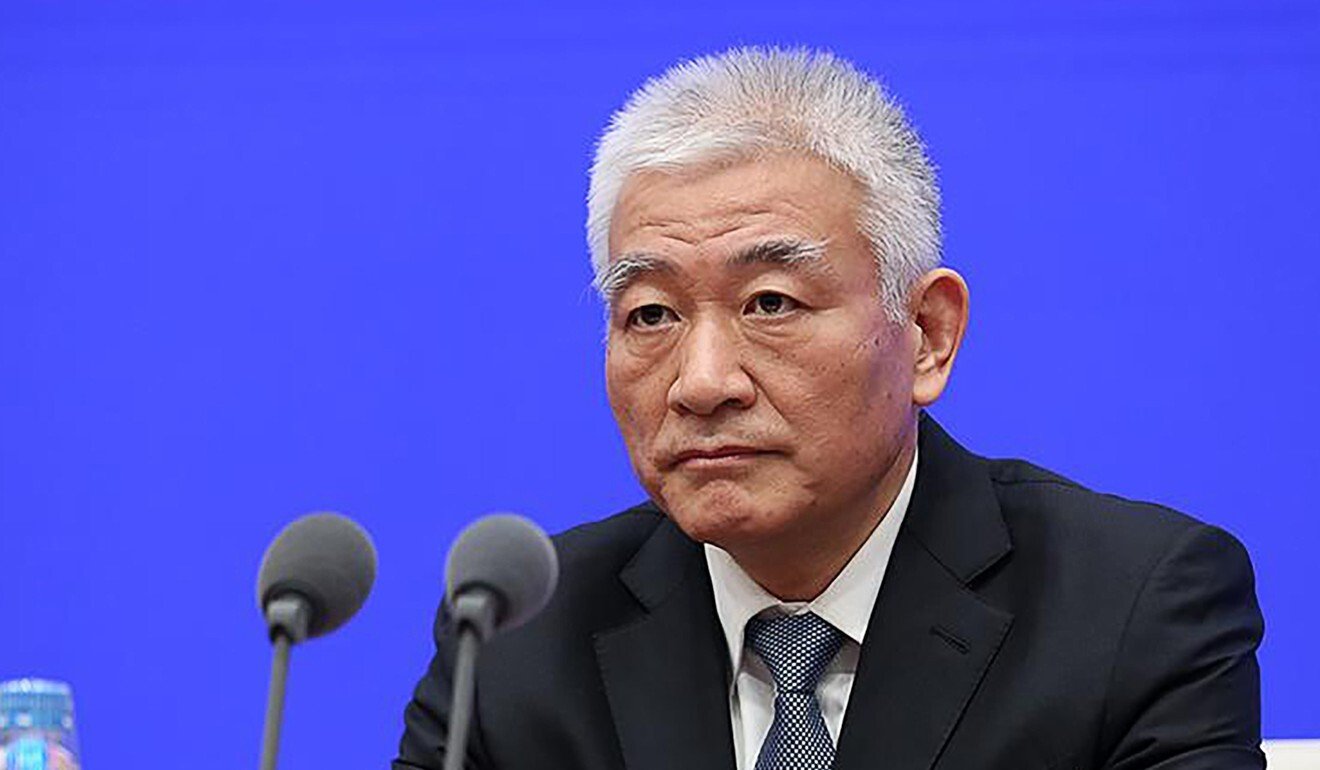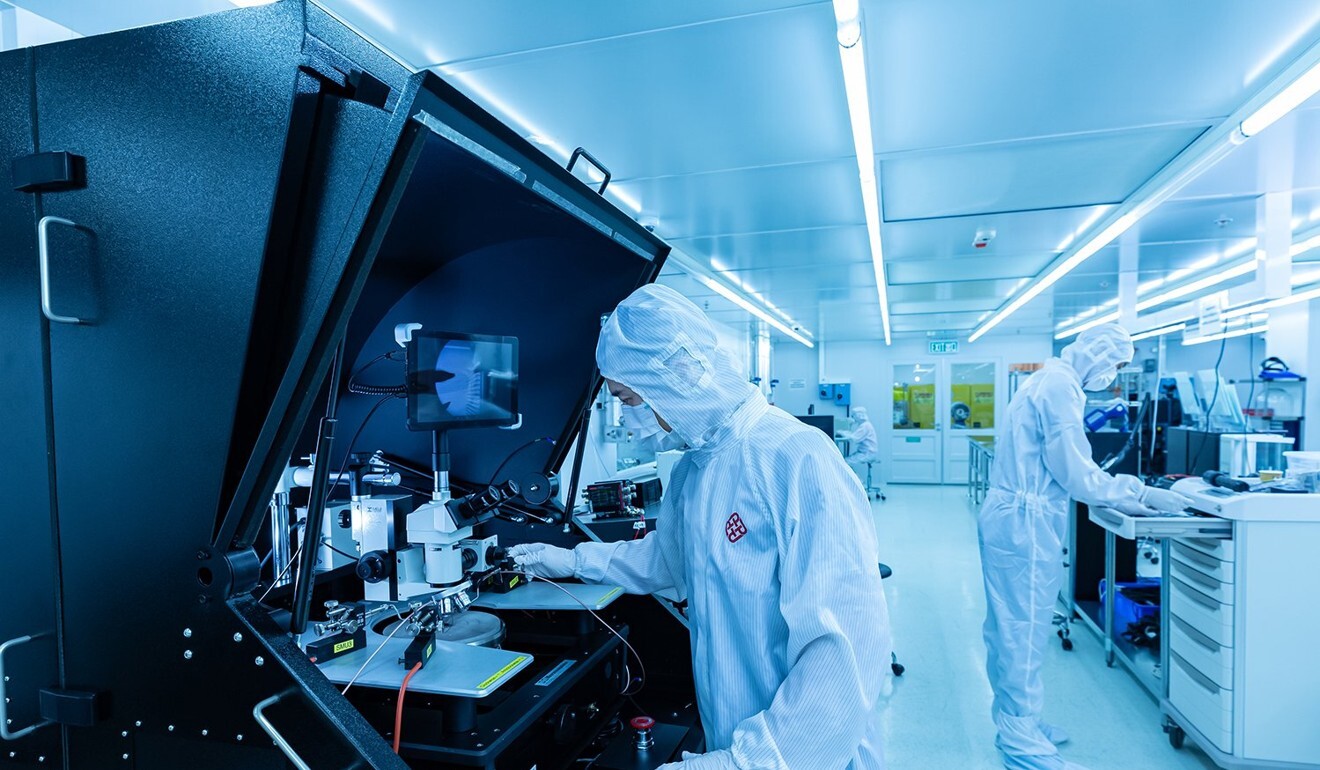
China fails to meet research spending goal but aims to double efforts in applied research, science minister says
- Country will put semiconductors – including integrated circuits, software and advanced chips – among its research and development priorities, Wang Zhigang says
- Government will present full version of its new five-year development plan at annual legislative session next week
China will double efforts in developing applied research in the next five years even though the country failed to meet its research spending target for its last five-year plan, according to its science minister.
Minister of Science and Technology Wang Zhigang said on Friday that China does not want a technology decoupling with the United States, especially in areas such as semiconductors and scientific research collaboration, but it will put semiconductors – including integrated circuits, software and advanced chips – among its research and development priorities.
“We still hope to forge international scientific and technology cooperation in semiconductors,” he said at a press conference in Beijing Friday.
“We will actively create a friendly environment for international companies to invest and develop in China … and we will strengthen intellectual property rights protection in our cooperation, strictly enforce protection for integrated circuits and software, and up the punishment for infringement of intellectual property rights.”

Ahead of China’s annual key parliamentary session next week where the government will present a full version of its new five-year development plan, the ministry on Friday elaborated how Beijing plans to become a world science and technology leader including promoting Hong Kong as a centre for innovation.
Beijing placed self-reliance in innovation front and centre in an outline of its 14th five-year plan.
Under the 13th five-year plan which ended last year, Beijing committed heavy resources to boost scientific and technological innovation, and set a goal of increasing research and development spending as a share of its economic output from 2.1 per cent to 2.5 per cent by 2020.
How vulnerable is China to US bond ‘taper tantrum’?
According to Wang, China spent around 2.4 trillion yuan (US$370 billion) or 2.4 per cent of GDP on research and development in 2020. That represented a year-on-year increase of 8 per cent, down from the 12.5 per cent jump in 2019.
Wang did not explain why China failed to meet its spending goal last year, but some analysts expected it since China only spent 2.23 per cent of GDP on research in 2019.
Wang, however, said China would strengthen its applied research in the next five years.
“Many of our technology problems – be they our own bottlenecks or limits imposed by foreign countries – resulted because we have lagged behind in our basic theory research,” said Ye Yujiang, the ministry’s director-general for basic research.
“Therefore, in the 14th five-year plan cycle, we will double our efforts on [this] … and direct more scientists to target-oriented applied research so we can overcome the difficult challenges that we face in our national development and security,” he said.

On the drafting of a new 10-year action plan on basic research, Ye said the new scheme would include strengthening applied research through a “strategic science plan and programme”, without offering details.
In the new five-year plan, the cities of Beijing, Shanghai and the Greater Bay Area, including Hong Kong, Guangdong and Macau, were designated as the three international innovation centres.
The ministry said the three regions would lead policy innovation in China, especially in forging synergy among science, technology, industry and finance.
Chinese University move to cut ties with union draws outrage among students, alumni
Wang also outlined Beijing’s measures to support Hong Kong’s technological innovation drive.
He said there would be more central government funded science projects available for application for Hong Kong researchers. In addition, Beijing will support Hong Kong scientists to participate in international science programmes and international bodies.
The central government will also encourage collaboration between mainland and Hong Kong’s businesses, universities and research institutions, and invite research institutes in the city to join national research platforms, especially those in the Greater Bay Area.

